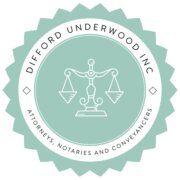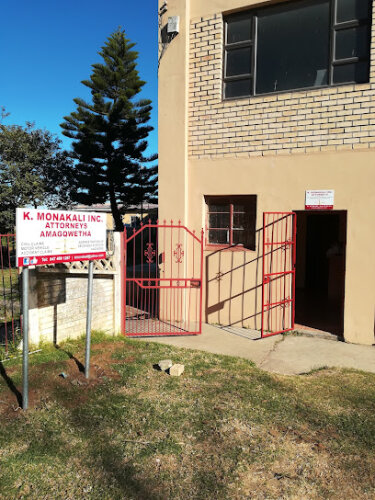Best Landlord & Tenant Lawyers in East London
Share your needs with us, get contacted by law firms.
Free. Takes 2 min.
Free Guide to Hiring a Real Estate Lawyer
List of the best lawyers in East London, South Africa
South Africa Landlord & Tenant Legal Questions answered by Lawyers
Browse our 3 legal questions about Landlord & Tenant in South Africa and read the lawyer answers, or ask your own questions for free.
- Can we evict tenants of our property if it is sold?
- May we evict the tenants of our property if it is sold. We have given them notice re this. They have not been paying rent nor deposit. We were very close of losing the house with the bank due to the tenants non payment
-
Lawyer answer by Recososa Law Firm
Hello:Under Philippine law, the rights of both the property owner and the tenants are governed mainly by the Civil Code and the Rent Control Act (if applicable depending on the rental amount). Since you mentioned that the tenants are not...
Read full answer - Eviction appeal
- Good day I had a tenant legally evicted and tool immediate occupation of my property she then went in later that day to her lawyers and got a re reentry court order, failing to disclose that I was already in the property. She and her boyfriend have broken in to... Read more →
-
Lawyer answer by SJ Law Experts
SJ Law Experts, IslamabadThank youSJ Law Experts, Islamabad [Advocates, Legal Advisors & Immigration Lawyers]
Read full answer - Is there a reason that my landlord is refusing to provide proof of putting my security deposit into an interest bearing account?
- The landlord at my former place of residence agreed to pay R8000 of my R11000 deposit after cleaning was done to the property. She provided a R2000 quotation fee but hasn't given me any other receipts to prove how the money was used. Despite that, I believe that cleaning was... Read more →
-
Lawyer answer by NARAG LAW OFFICE
That is not required by law. It is not even in the contract.
Read full answer
About Landlord & Tenant Law in East London, South Africa
Landlord and tenant law in East London, South Africa, is governed primarily by national legislation such as the Rental Housing Act, as well as regional bylaws and common law principles. These laws regulate the leasing of residential, commercial, and industrial property, ensuring fair rights and obligations for both landlords and tenants. Disputes often arise over rent, maintenance, eviction, and deposits, but the legal framework is designed to promote balanced, transparent relationships and address grievances through structured procedures.
Why You May Need a Lawyer
Engaging a lawyer with expertise in landlord and tenant law can be crucial in a variety of situations. Common scenarios include:
- Drafting or reviewing lease agreements
- Resolving deposit disputes at the end of a tenancy
- Eviction proceedings, whether as a landlord or a tenant
- Non-payment of rent or breach of lease terms
- Dealing with unlawful occupation or urgent applications
- Claims for property damage or neglect of repairs
- Negotiating settlements and mediating disputes
- Navigating regulatory compliance and legislative changes
Having a qualified legal representative can protect your rights, ensure that processes are followed correctly, and often lead to more efficient and amicable outcomes.
Local Laws Overview
Some of the most important pieces of legislation and regulations concerning landlord and tenant matters in East London, South Africa, include:
- Rental Housing Act (Act 50 of 1999): This act sets out the rights and responsibilities of landlords and tenants and provides guidelines for lease agreements, dispute resolution, and rental housing tribunals.
- Prevention of Illegal Eviction from and Unlawful Occupation of Land Act (PIE) (Act 19 of 1998): PIE regulates how and in what circumstances evictions can occur, emphasizing due process and protection of vulnerable groups.
- Consumer Protection Act (Act 68 of 2008): Provides additional protection for tenants, especially concerning unfair contract terms.
- Eastern Cape Local Bylaws: Regulations may address matters such as sanitation, building compliance, and residential zoning, impacting landlord and tenant obligations.
Landlords and tenants in East London can approach the Eastern Cape Rental Housing Tribunal for dispute resolution, and must be aware of local procedures for filing complaints or eviction orders.
Frequently Asked Questions
What should be included in a lease agreement?
A lease agreement should clearly state the names of the landlord and tenant, property address, rental amount and due date, deposit details, duration of the lease, obligations regarding maintenance and repairs, notice periods for termination, and any special conditions agreed upon. It is advisable to have it in writing and signed by both parties.
Can a landlord increase the rent at any time?
No, rent increases are typically subject to the terms outlined in the lease agreement. In the absence of a specific clause, reasonable notice (usually one month) must be given before an increase, and it should not be excessive or unfair.
What is the process for evicting a tenant?
Eviction can only occur through a court order, after giving the tenant proper notice and following specific procedures outlined in the PIE Act. Unlawful or forceful evictions are illegal and can result in penalties for the landlord.
Is a landlord required to return the deposit?
Yes, the landlord must return the deposit (plus interest, if applicable) within 14 days after the lease ends, provided there are no damages or outstanding payments. Deductions can only be made for legitimate claims, and receipts or invoices must be provided.
Who is responsible for repairs and maintenance?
The landlord is generally responsible for structural repairs and maintaining the property in a habitable condition, while the tenant must take care of day-to-day maintenance and report damages promptly. These terms should be clearly set out in the lease.
What happens if a tenant stops paying rent?
The landlord should send the tenant a written notice demanding payment. If the tenant fails to pay within the stipulated period, the landlord can begin legal proceedings that could eventually lead to eviction. However, the landlord cannot change locks or remove belongings without a court order.
Can a tenant withhold rent for unresolved maintenance issues?
Tenants should not withhold rent unless specifically permitted by a court order. Instead, they should document complaints, inform the landlord in writing, and may seek assistance from the Rental Housing Tribunal if repairs are not addressed.
Where can tenants and landlords resolve disputes?
Most landlord-tenant disputes in East London can be referred to the Eastern Cape Rental Housing Tribunal, which offers free mediation and adjudication services. Alternatively, parties may approach the Magistrates Court.
Are verbal lease agreements valid?
Verbal lease agreements are legally binding in South Africa, but they can be difficult to enforce. Written agreements are always recommended for clarity and to avoid misunderstandings.
What protection exists against unfair eviction?
The PIE Act protects tenants from being evicted without due process. Evictions can only occur after a competent court has granted an eviction order, having considered all relevant circumstances.
Additional Resources
If you need further help or information, you can contact or visit these resources:
- Eastern Cape Rental Housing Tribunal: Handles landlord-tenant disputes and provides guidance on rental matters in the province.
- Legal Aid South Africa - East London Justice Centre: Offers free or affordable legal services for those who qualify.
- Department of Human Settlements: Provides regulatory oversight and policy information related to housing and rental matters.
- Law Society of South Africa: Can assist in finding a qualified attorney specializing in landlord and tenant law.
- Magistrates Court - East London: The venue for formal legal proceedings concerning evictions or contractual disputes.
Next Steps
If you require legal assistance with a landlord and tenant matter in East London, consider the following steps:
- Gather all relevant documents, such as lease agreements, correspondence, and proof of payment.
- Try to resolve the issue directly with the other party, if possible, and keep records of all communications.
- If the dispute persists, approach the Eastern Cape Rental Housing Tribunal for free mediation services.
- Consult a qualified attorney with experience in landlord and tenant law for specific advice and representation if necessary.
- Should formal legal action be required (such as eviction or claim for damages), your lawyer will guide you through the correct legal processes.
Acting promptly and seeking appropriate advice can help protect your interests and lead to a faster resolution of your landlord and tenant issues.
Lawzana helps you find the best lawyers and law firms in East London through a curated and pre-screened list of qualified legal professionals. Our platform offers rankings and detailed profiles of attorneys and law firms, allowing you to compare based on practice areas, including Landlord & Tenant, experience, and client feedback.
Each profile includes a description of the firm's areas of practice, client reviews, team members and partners, year of establishment, spoken languages, office locations, contact information, social media presence, and any published articles or resources. Most firms on our platform speak English and are experienced in both local and international legal matters.
Get a quote from top-rated law firms in East London, South Africa — quickly, securely, and without unnecessary hassle.
Disclaimer:
The information provided on this page is for general informational purposes only and does not constitute legal advice. While we strive to ensure the accuracy and relevance of the content, legal information may change over time, and interpretations of the law can vary. You should always consult with a qualified legal professional for advice specific to your situation.
We disclaim all liability for actions taken or not taken based on the content of this page. If you believe any information is incorrect or outdated, please contact us, and we will review and update it where appropriate.











